Are you a tenant facing maintenance issues in your rental property? It can be frustrating trying to communicate your needs to landlords or property managers. Having a clear and concise letter template can help streamline the process and ensure your concerns are addressed promptly. Join us as we explore the essential elements of a maintenance request letter that will get your voice heard and repairs made quickly!
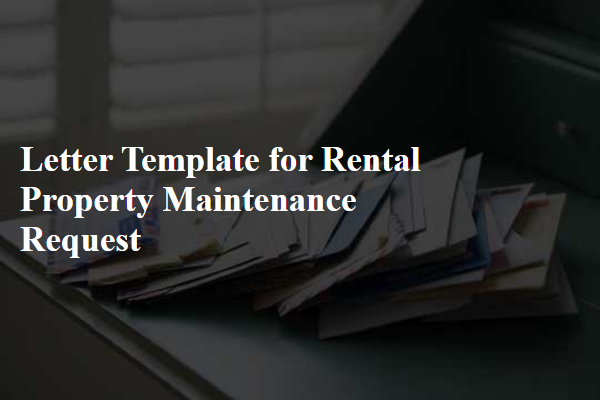
Detailed description of the maintenance issue
A leaking faucet can lead to significant water wastage and increased utility bills in rental properties, particularly in apartments like those in New York City. Common issues include a constant drip, caused by worn-out washers or seals, often measured at rates of 10 gallons per week. Water damage to cabinets or under-sink plumbing may occur, resulting in costly repairs. Additionally, prolonged leakage can foster mold growth, compromising indoor air quality and tenant health. Timely addressing of such maintenance issues is crucial to prevent further complications and ensure tenant satisfaction.
Urgency and potential impact on property
A plumbing leak in the rental unit can lead to significant structural damage and mold growth if not addressed promptly. Water seeping from pipes (often exceeding 1 gallon per hour) can weaken drywall, causing ceilings to sag. Persistent moisture may create a conducive environment for mold spores to flourish, increasing health risks such as respiratory issues for tenants. Additionally, if the property is located in areas prone to flooding, like coastal regions or low-lying neighborhoods, the urgency of the repair amplifies, potentially impacting surrounding ecosystems and neighboring units. Immediate intervention is essential to prevent costly repairs, maintain tenant safety, and preserve the overall integrity of the property.
Tenant contact information
A maintenance request for rental properties is essential for ensuring tenant safety and satisfaction. Comprehensive tenant contact information includes full name, phone number, email address, and the specific apartment unit number. This data facilitates effective communication between tenants and property management. Accurate record-keeping of maintenance requests contributes to timely resolutions. Ensuring that all contact information is up to date is crucial in avoiding delays in addressing plumbing issues, electrical failures, or HVAC malfunctions. A well-organized system for tracking these requests can enhance overall property management efficiency.
Request for a timeline or response
A rental property maintenance request can often lead to various issues if not addressed promptly, significantly impacting tenant satisfaction. Timely responses from property managers or landlords are crucial in ensuring that repairs, such as leaking pipes in kitchens or malfunctioning heating systems in winter months, are handled efficiently. For instance, water leaks can escalate quickly, leading to mold growth or structural damage, which could require extensive repairs and result in costs ranging from hundreds to thousands of dollars. Furthermore, tenants residing in high-demand areas, like downtown Chicago or San Francisco, often expect swift service due to competitive rental markets. Thus, a clear timeline for response not only improves tenant relations but also maintains the integrity of the property long-term.
Documentation of previous maintenance requests or communications
Previous maintenance requests for rental properties often serve as a critical record, especially in establishing patterns of issues that require attention. These documents can include emails, texts, or official forms submitted to property management regarding past repairs. For instance, a tenant may have reported a leaky faucet (notable issue affecting water usage) in the kitchen of their apartment located at 123 Elm Street, last documented in April 2023. By reviewing these communications, property managers can identify recurring issues, prioritize urgent fixes, and ensure timely responses to tenant needs. Accurate documentation also holds legal importance, providing evidence of the history of maintenance-related problems and preventing disputes over service delays or property conditions.

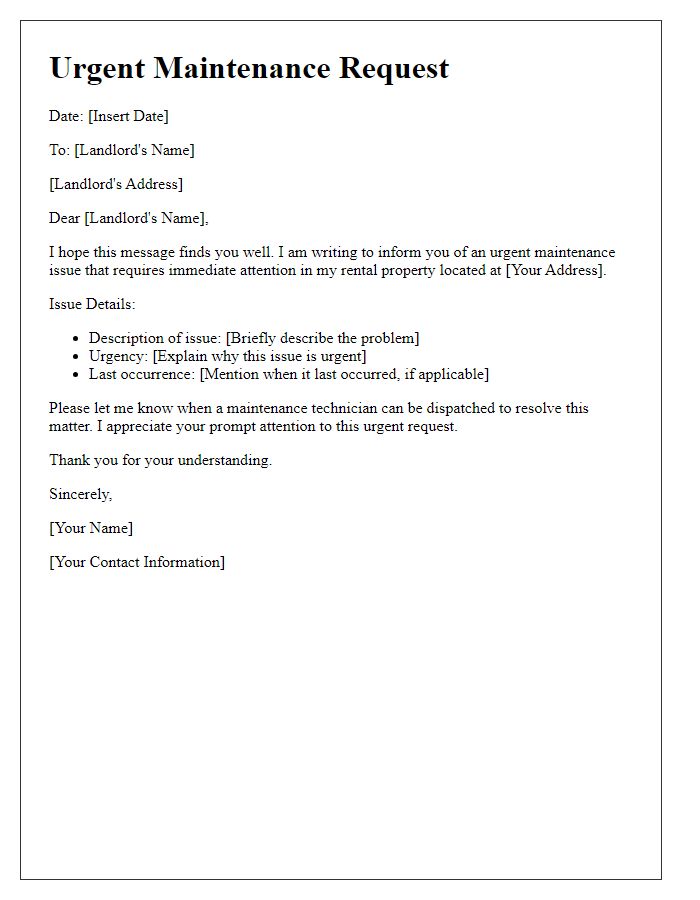
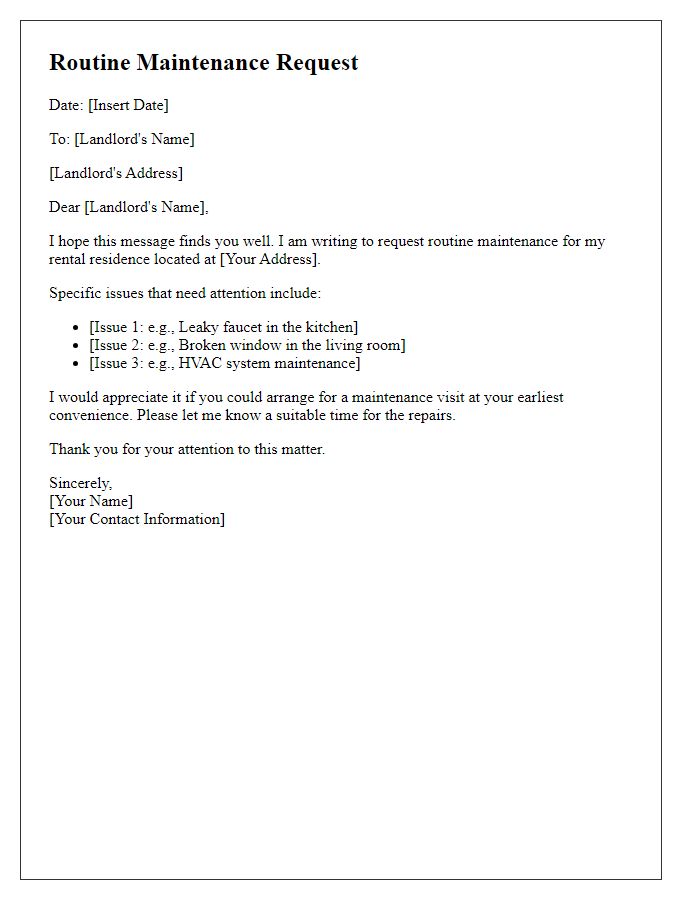
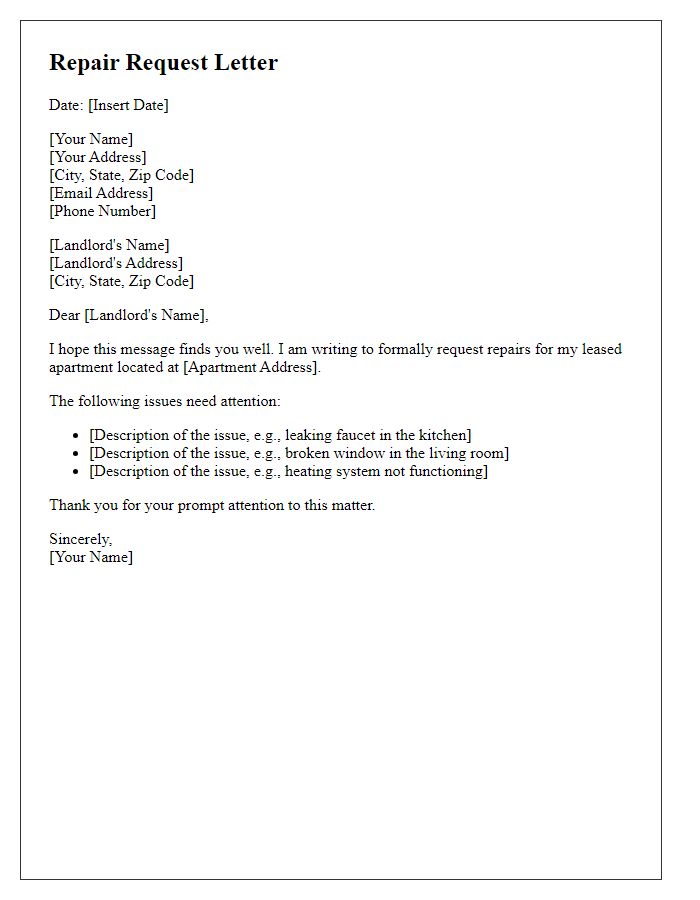
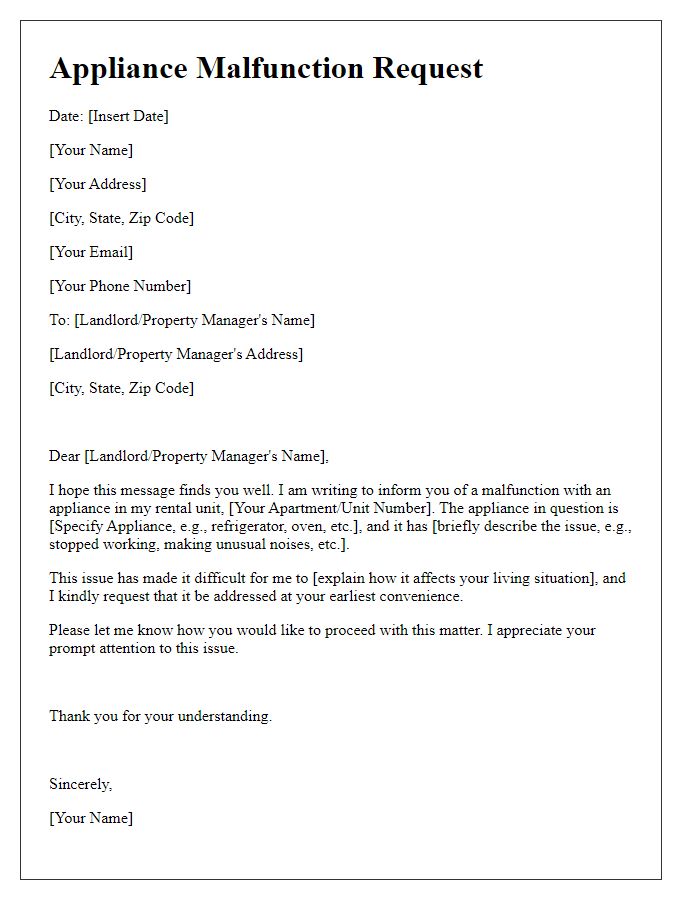
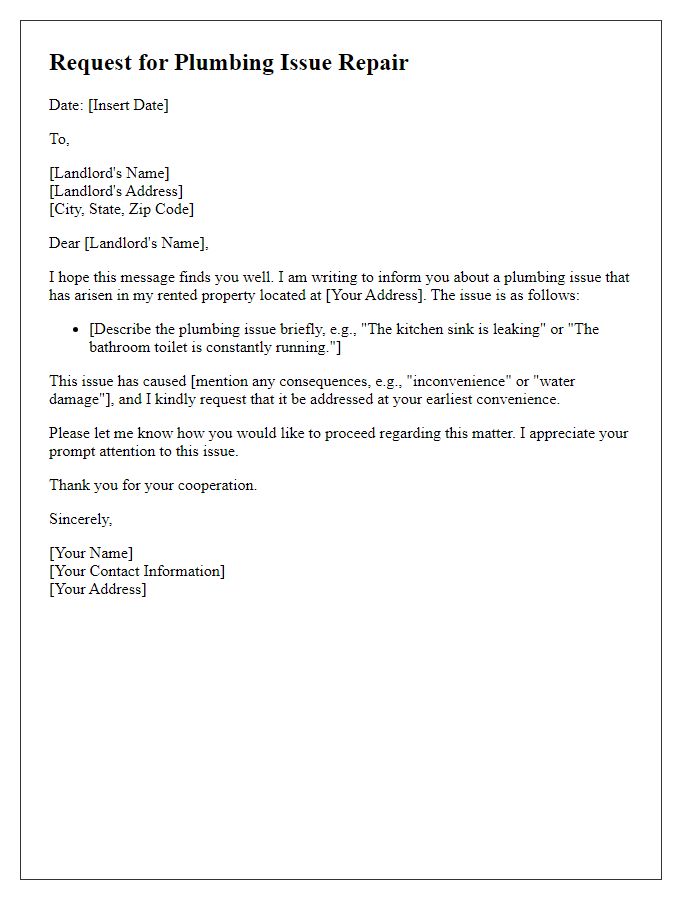
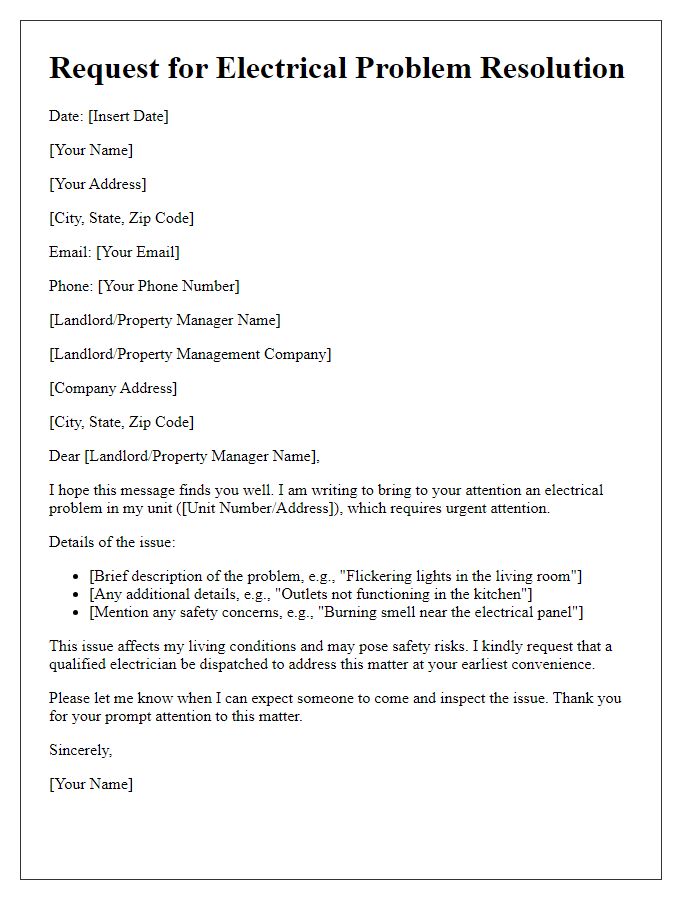
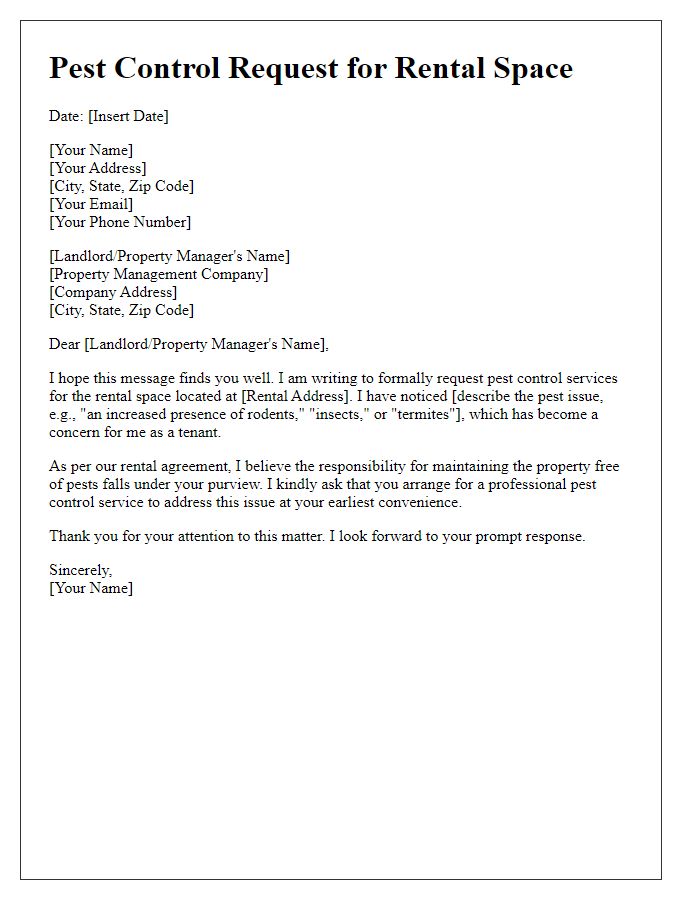
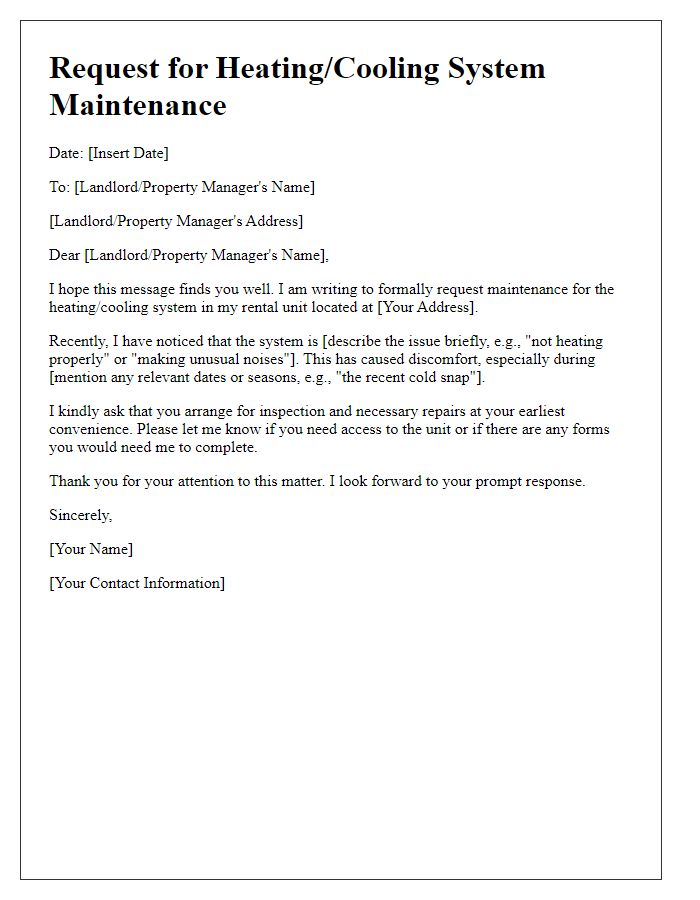
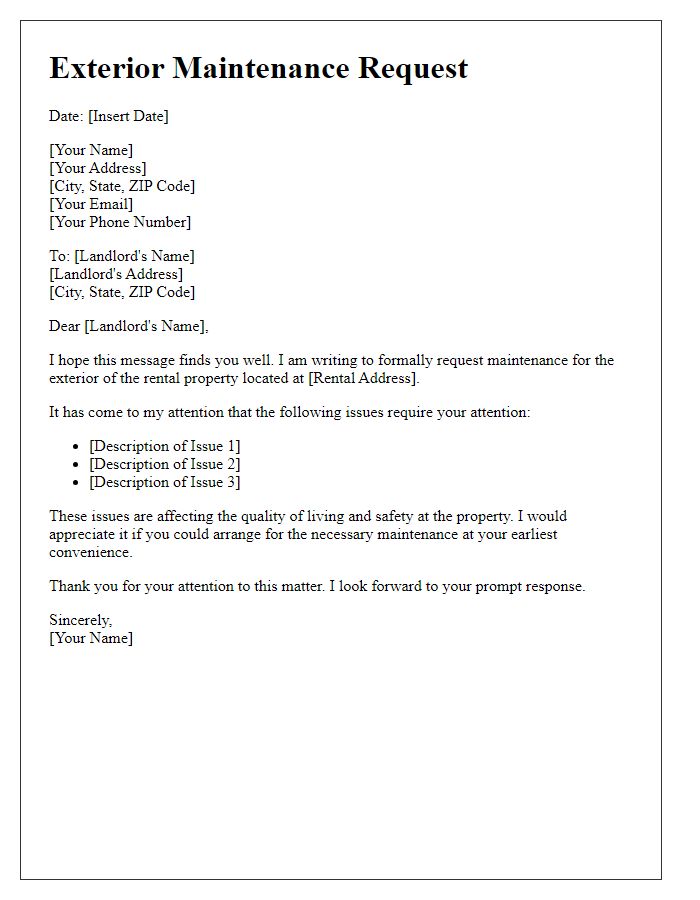
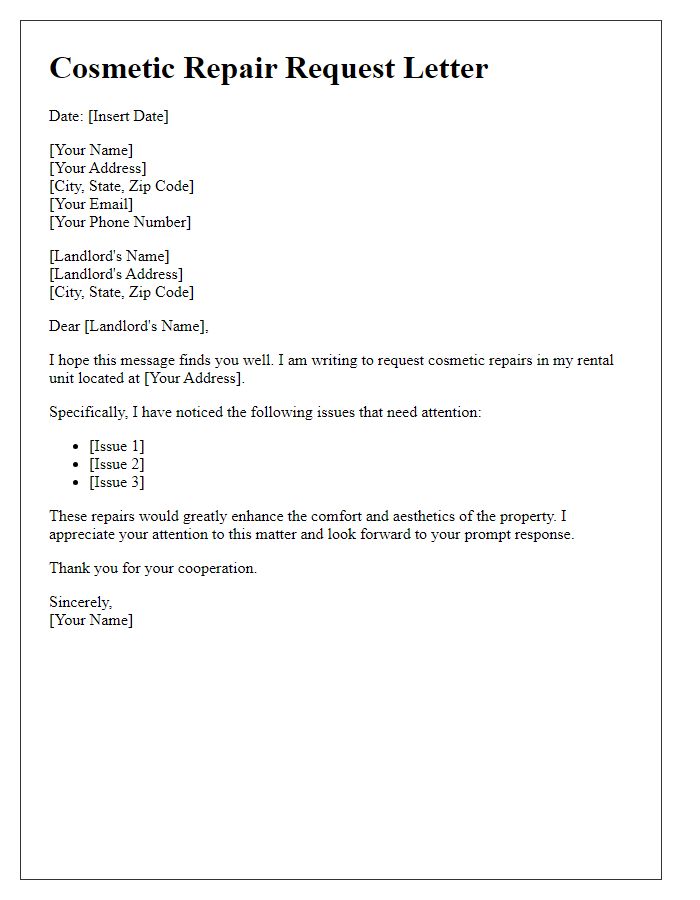

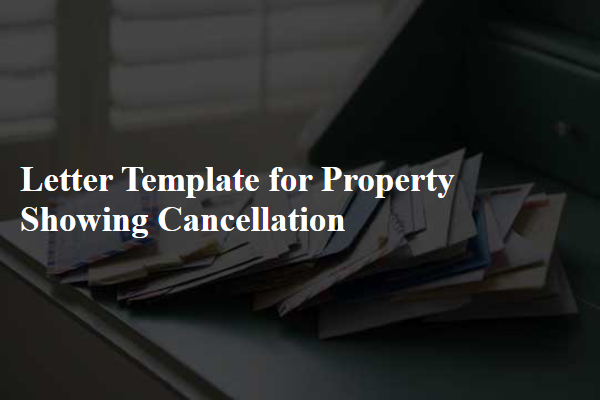
Comments